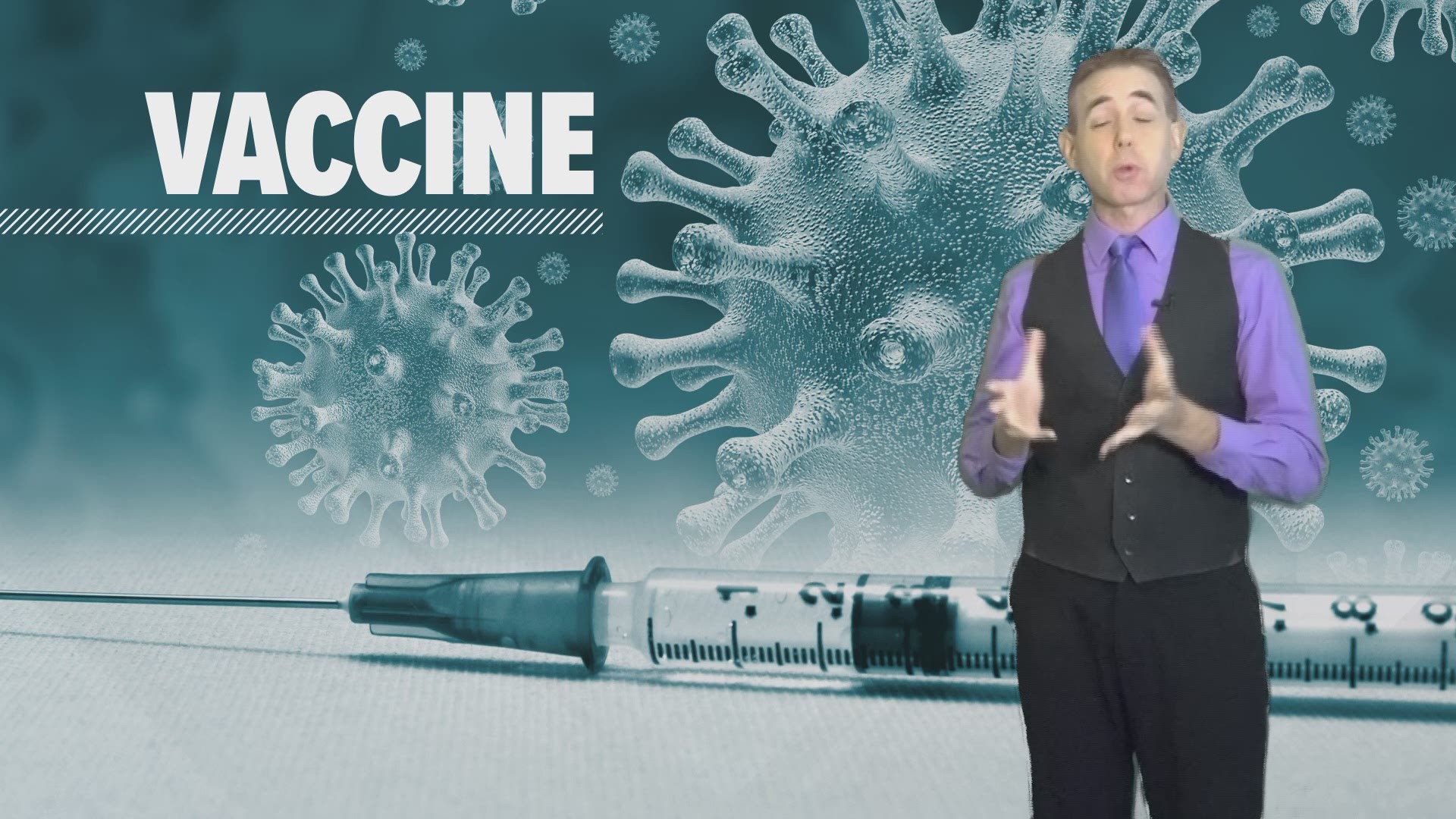SAN ANTONIO — Thousands of people expecting to get vaccinated Monday at the Alamodome were let down. City leaders say they had to postpone appointments after a shipment of 9,000 Pfizer vaccine doses was delayed, but there are other ways to get vaccinated.
WellMed is another entity providing these life-saving coronavirus vaccines. They opened up their toll-free hotline Saturday and it's still open right now as they continue to register spots for 9,000 doses.
Even if you do get both doses of the vaccine, you still need to keep taking safety precautions like washing your hands, social distancing and wearing a mask, because you can still carry the virus and transmit it to others.
"The clinical trials that were used to study the vaccines didn't actually determine whether the vaccine actually prevents transmission, so it's very possible that getting a vaccine will reduce your likelihood of illness but still allow you to transmit that disease to somebody else who either hasn't been vaccinated or is still vulnerable," said Dr. Bryan Alsip with University Health.
He also said even if everyone in your circle has been vaccinated you still need to be careful for the good of the whole City.
"If everyone around you that is in close proximity has been immunized it is likely you are all protected from the symptomatic effects of the disease, but since you can potentially transmit the disease you have to be very cautious about how you are around others," Alsip said.
The WellMed hotline number to call is 833-968-1745. With hundreds of thousands of people calling every hour and only 30 to 50 volunteers answering phones not everyone will get through, but they'll keep taking calls until every spot is filled up.
For all of those people, and those who have yet to become eligible for the vaccine it is imperative that you get both doses to achieve maximum efficacy.
"The best protection comes from two doses in a two dose series, but data available for the two vaccines that are currently authorized indicate that a single does offer some protection," Alsip said.
After both doses of either the Pfizer or Moderna vaccine, experts say you'll achieve about 95% efficacy, but it does take time for the vaccines to kick in after you receive them.
"The initial response comes from around two weeks after the dose of the vaccine," Alsip said. "That's as long as it takes for immunity to kick in and antibodies to develop."
All of the registration spots for Wednesday at the Alamodome are filled, but there are four ways you can sign up to find out about more vaccinations:
Download the Ready South Texas app. Text COSAGOV to 55000 to receive text message updates. Follow the city on Facebook, Twitter and Instagram. Also, you can bookmark the city's vaccine registration page.
Many wonder how long you are immune to the virus once you get a vaccine. Dr. Alsip said, "There are some recent reports from Moderna that say they feel it lasts at least a year. That may be also true for the Pfizer vaccine which is very similar. The hope is that it will be at least a year in terms of protection."
That immunity is at best an educated guess. But what goes into that idea involves the idea of the immunity you get from the virus itself which varies but is thought to last at least a few months. The immunity with the vaccine is much longer. Dr. Alsip added, "For COVID infection the natural immunity from that is relatively unknown and it can vary amongst individuals. So it is felt that the vaccine, which is shown to be effective in reducing symptomatic disease, is a better way to insure immunity and also thought to last longer."
University Health was at Wonderland of the Americas throughout the day giving coronavirus vaccines to frontline healthcare workers and the elderly. They say they have enough vaccines to continue with scheduled appointments, but because of the limited number of doses they will not be registering anyone in the 1B category.
For now they'll only be providing them for their current patients from underserved areas of the community who have pre-existing conditions or who are 65 years of age, or existing patients who are especially vulnerable due to medical conditions.

